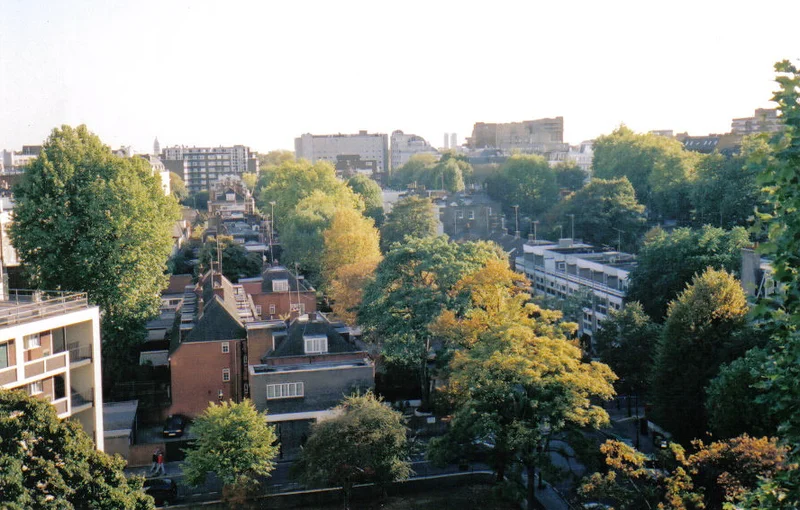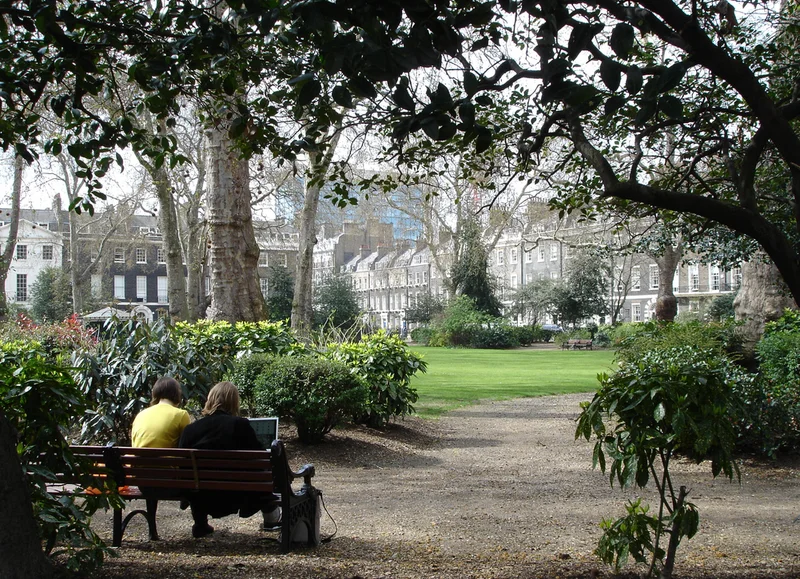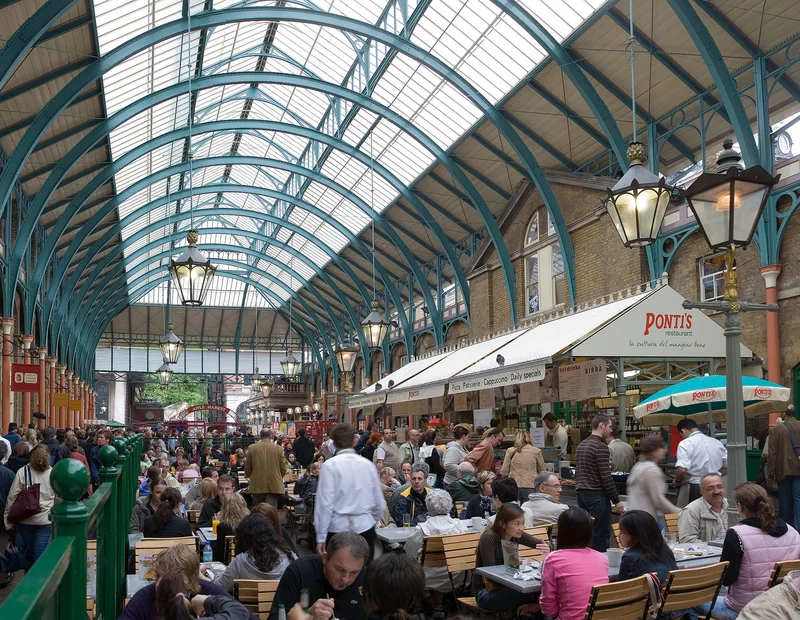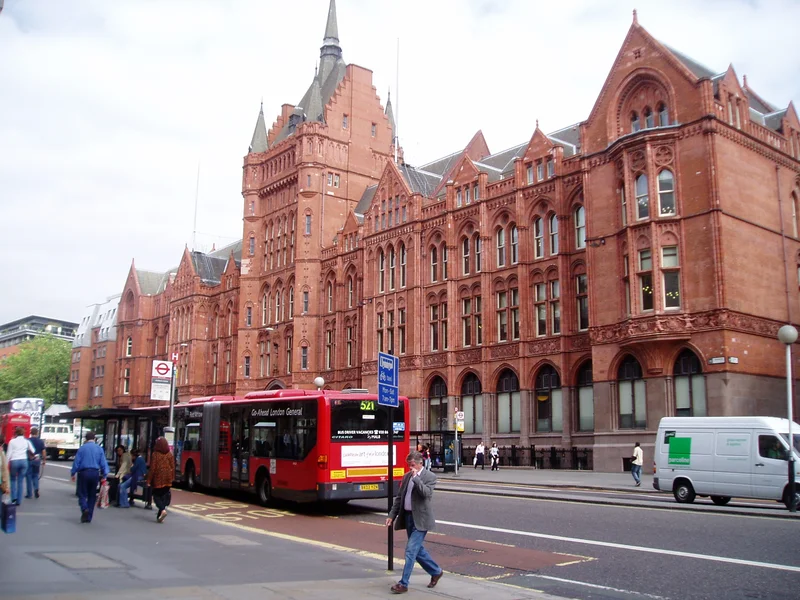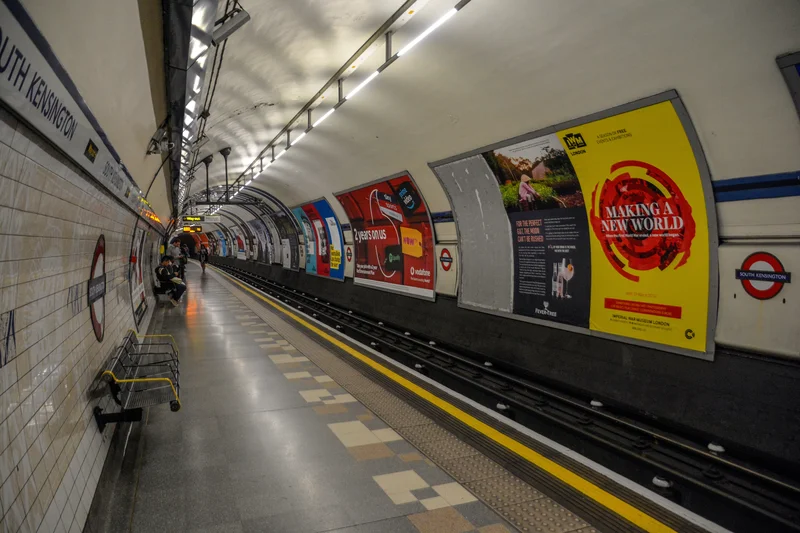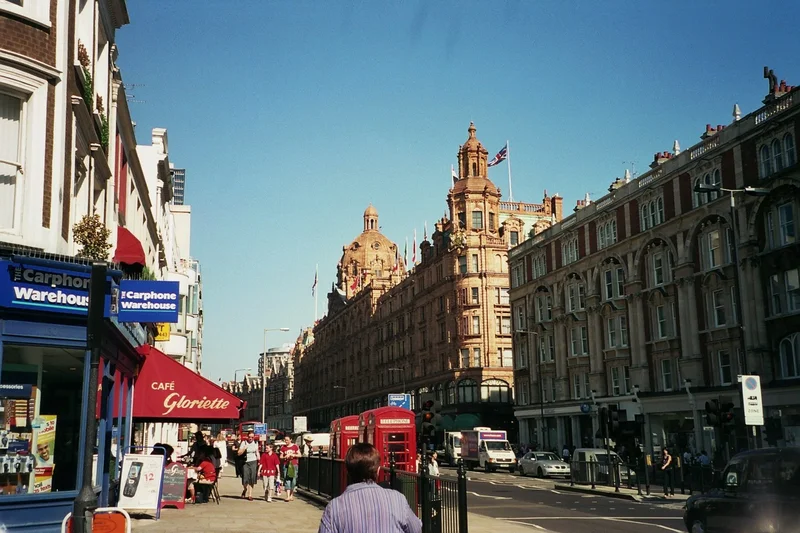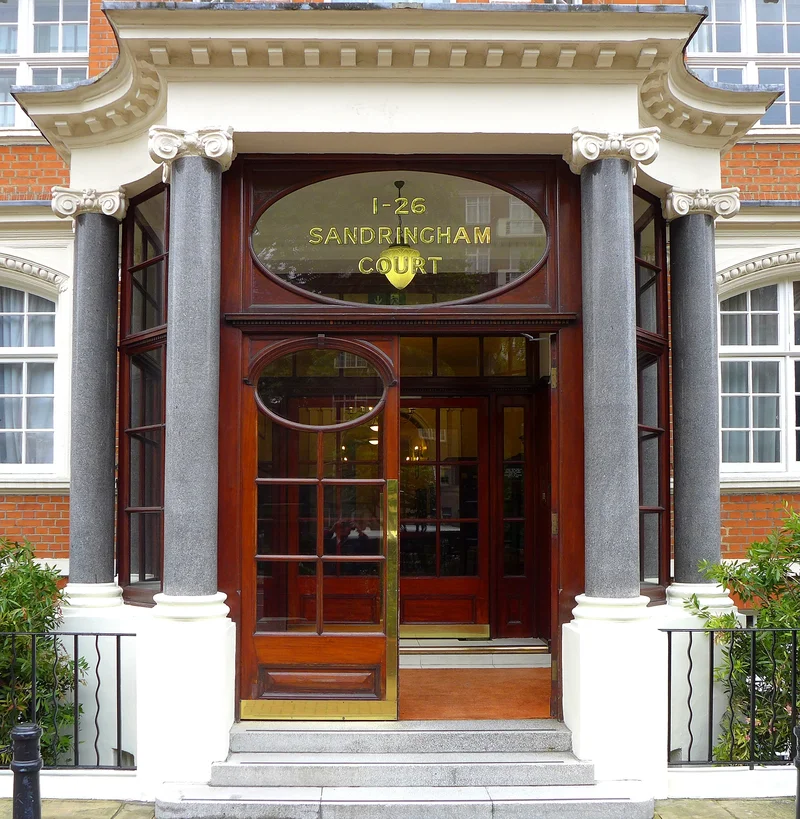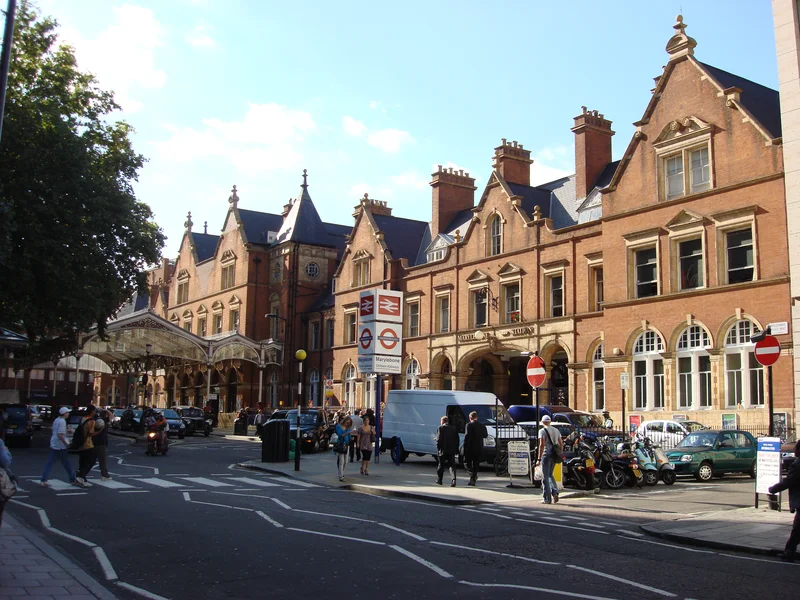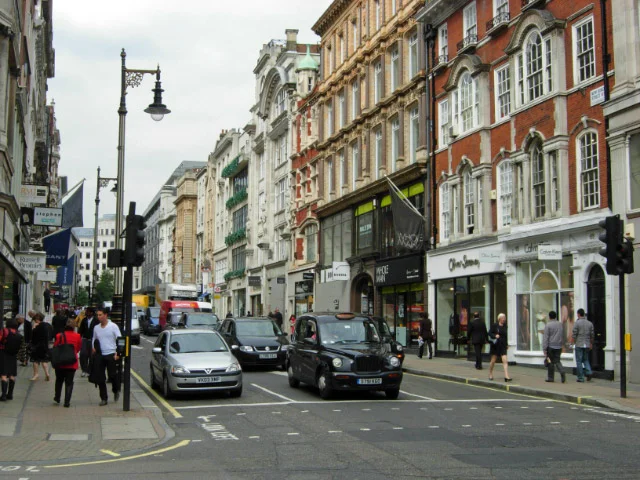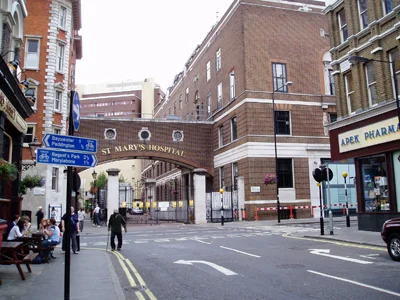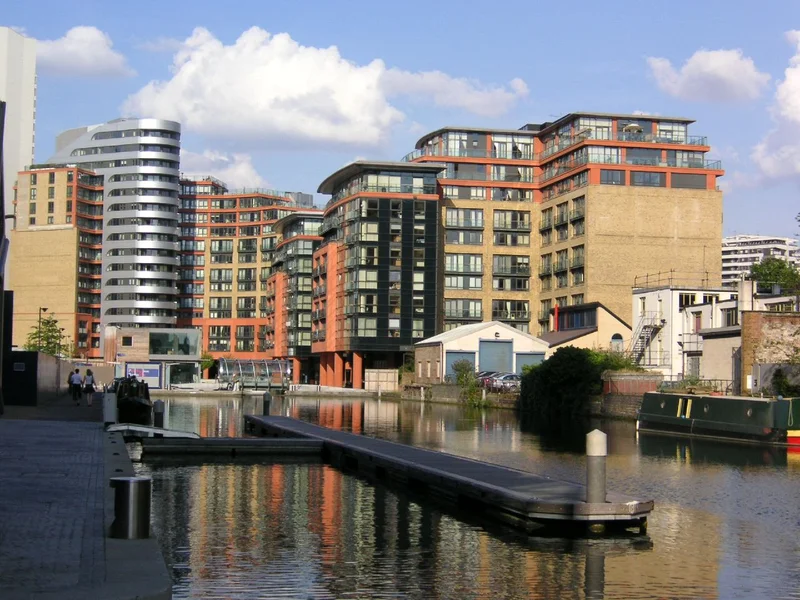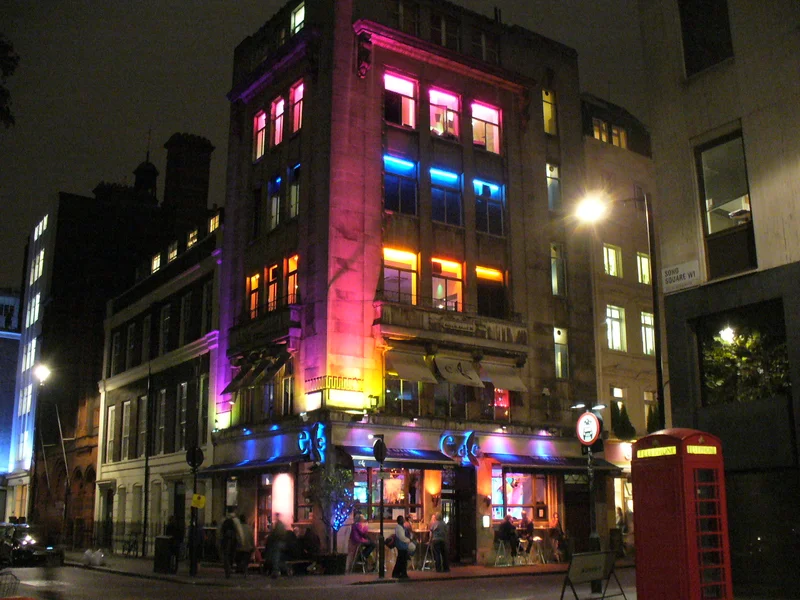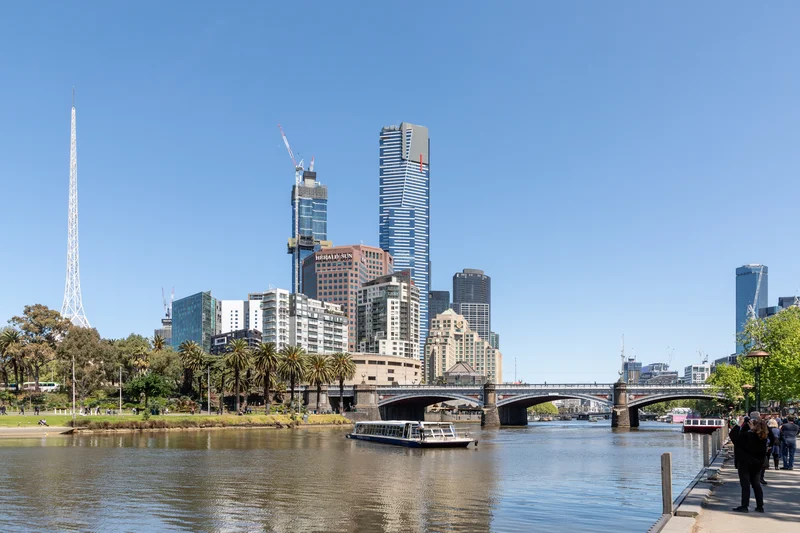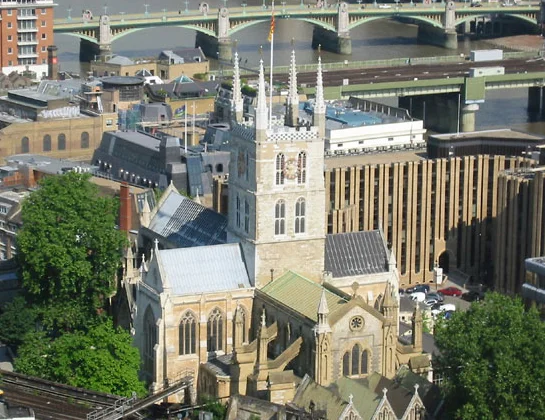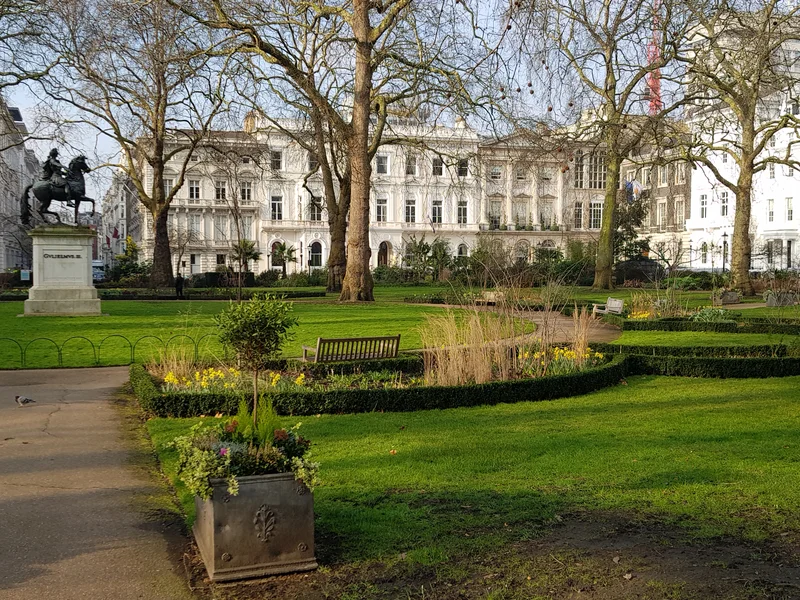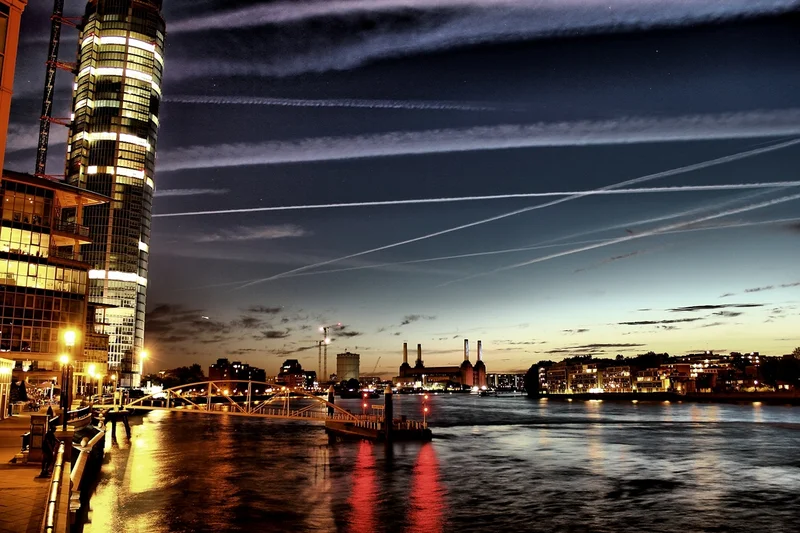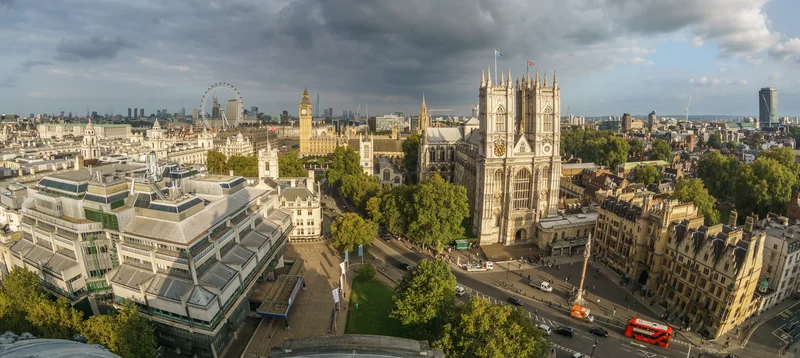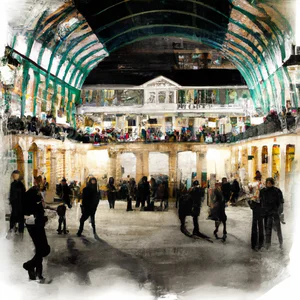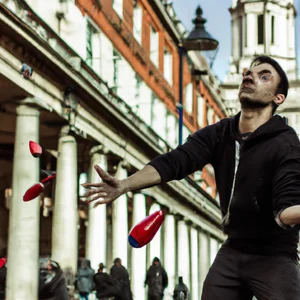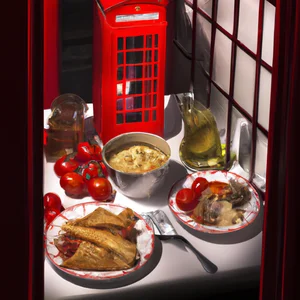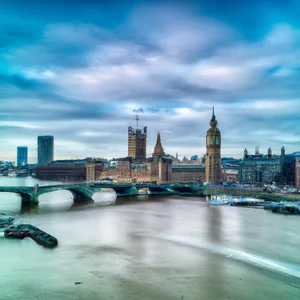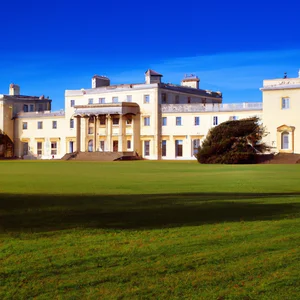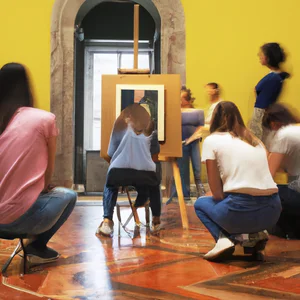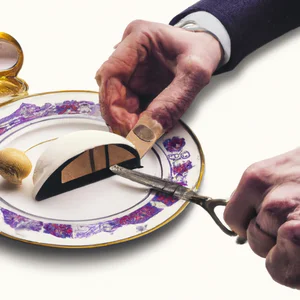Book your experience
Useful phrases in English
So, let’s talk about those British English phrases that can come in super handy if you’re in London. It’s a bit like having a small arsenal of words ready to use, you know? When you find yourself wandering the streets of Camden or sipping tea in a pub, having a few expressions on hand can make all the difference.
For example, when you enter a place and want to order something, you might say “I’d like a cuppa, please.” This is a nice way to ask for tea. And let’s talk about “cheers” which, oh boy, is used in a thousand different ways! It can mean “thank you,” “cheers” when you raise your glass, or even just a way to end a conversation.
And then, how about “fancy a pint?” If you’re in a pub, it’s an invitation to have a beer, and believe me, Londoners love doing it! I remind you that the climate there is a bit… how to say, variable, so always bring an umbrella! Maybe you find yourself chatting with someone and you say: “It’s raining cats and dogs!” – don’t worry, it’s just a way of saying that it’s raining cats and dogs.
By the way, once, I remember going to London and asking a passerby for directions. She was so kind that she even accompanied me to the metro stop, and as we walked, she explained to me that “mind the gap” is not just a warning, but a real mantra for metro users.
In short, having a few phrases ready in your pocket can really help you feel more at ease. And if you happen to get a few words wrong, don’t worry! They are used to it and often laugh heartily. So, while you’re out there, remember: “Just enjoy the ride!” and let yourself be carried away by the unique atmosphere of London.
Essential phrases for finding your way around London
Walking the streets of London is like immersing yourself in a labyrinth of history and modernity. The first time I visited the city, I found myself looking for the Piccadilly Circus tube station, completely disorientated. With a paper map in hand and my smartphone empty, I realized how crucial it was to be able to express my needs in English. The simple, yet effective phrases proved essential not only in orienting myself, but also in connecting with the locals.
Key phrases to orient yourself
When you’re in London, a few phrases can make your experience much smoother. Here are some useful expressions you may want to memorize:
- “Excuse me, can you help me find…?”
- “Where is the nearest tube station?”
- “How do I get to…?”
- “Is this the right way to…?”
These phrases will not only help you get the necessary directions, but will also demonstrate your interest in communicating with Londoners.
An insider tip
A little-known trick for finding your way around London is to use navigation apps that support public transport, such as Citymapper. This app is a lifesaver, as it not only gives you the quickest directions, but also includes information about delays and service interruptions. A great resource for those who want to explore the city without stress.
Cultural and historical impact
London is a city rich in history and culture, where the past is intertwined with the present. Being able to ask for directions effectively not only facilitates your exploration, but also allows you to engage with London’s cultural heritage. Every street and every square tells a story. Asking where a particular monument is located is not just a question of orientation; it’s a way to connect with the daily life of a vibrant metropolis.
Sustainability in travel
As you find your way around the city, remember to use public transport, which is a sustainable way to explore London. Tubes and buses not only reduce your environmental impact, but also allow you to experience the authenticity of London life. Using public transport is a responsible gesture that every traveler should embrace.
Recommended activity
For an unforgettable experience, try visiting Borough Market. Here you can not only enjoy some of the best British food, but also practice your language skills as you ask about local produce. It’s a great place to interact with vendors and discover the secrets of London cuisine.
Myths and misconceptions
A common misconception is that everyone in London speaks “difficult” English or is rude. In reality, most Londoners are very helpful and appreciate visitors’ efforts to communicate. Don’t hesitate to ask for help; courtesy is a shared value.
Final reflection
Next time you’re in London, ask yourself: How much can my travel experience change by simply asking for help? The city is full of people ready to share their knowledge, and the right phrases can open doors to unexpected encounters and adventures memorable.
Greetings and pleasantries: the key to courtesy
An unforgettable meeting
On my first trip to London, I vividly remember the warm hospitality of a barista in a small cafe in Covent Garden. As I ordered a flat white, he greeted me with a smile and a “How’s your day going?” he immediately put me at ease. This simple exchange of greetings turned a coffee break into a memorable experience. In such a vibrant metropolis, greetings can be the first step in connecting with Londoners and immersing yourself in the local culture.
Courtesy practices
In England, courtesy is a fundamental part of everyday life. It is customary to begin conversations with a “Hello” or “Hi,” followed by a “How are you?” While it may seem like simple protocol, these expressions reflect a genuine concern for the well-being of others. Don’t forget to use “please” and “thank you”, which are considered essential for respectful interaction. Sources such as the British Council highlight the importance of these pleasantries for social dialogue.
An insider tip
A little-known tip is to pay attention to your tone and gestures during your greetings. A sincere smile and eye contact can make a big difference, making the interaction more authentic. Furthermore, if you want to make a good impression, you can try using the typical London greeting: “Cheers!” to say thank you or end a conversation.
The cultural impact
The way Londoners greet each other has deep roots in the city’s history, influenced by centuries of interactions between different cultures and social classes. These greetings aren’t just a way to start a conversation; they also represent a bridge between the different communities that coexist in this cosmopolitan metropolis.
Responsible tourism practices
In an age where sustainable tourism is increasingly important, learning to greet and interact with locals can contribute to a more authentic and respectful travel experience. Showing interest in the local culture and using appropriate phrases not only enriches your stay, but also helps build more genuine relationships with the community.
An opportunity not to be missed
To put these greetings into practice, I recommend visiting a local market, such as Borough Market. Here, among stalls of fresh and artisanal products, you will have the opportunity to exchange a few words with the sellers and other visitors. Not only can you enjoy delicious British dishes, but you can also immerse yourself in a lively and welcoming atmosphere.
Myths to dispel
A common misconception is that Londoners are cold or aloof. In fact, many are happy to interact and share their culture, especially if you introduce yourself with a smile and a polite phrase. The key is to approach with an open and respectful attitude, in line with London’s cosmopolitan atmosphere.
Final reflection
Next time you’re in London, take a moment to observe the daily interactions of the locals. How can greetings and pleasantries impact your travel experiences? Let courtesy become your business card in this fascinating city.
Expressions to enjoy British cuisine
A journey through flavors and words
I still remember my first visit to a traditional London pub, sitting on a wooden bench next to a group of friends. While we enjoyed a steaming fish and chips, a lively discussion about the different variations of bangers and mash sparked. The liveliness of that moment was not limited only to the food, but also to the expressions that accompanied each dish. Discovering the right words to describe typical British dishes not only enriches the culinary experience, but also creates a direct link with local culture.
Useful phrases for an authentic gastronomic experience
When sitting at the table in a restaurant or pub, some expressions can help make the interaction more fluid and pleasant:
- “What do you recommend?” – An easy way to get tips from locals.
- “I would like to try the… “ – Perfect for ordering typical dishes such as shepherd’s pie or full English breakfast.
- “Is this dish spicy?” (Is this dish spicy?) – Useful for those with more delicate palates.
A little-known tip
A secret that only true lovers of British cuisine know is the importance of asking for gravy – a thick and tasty sauce that accompanies many dishes. Don’t be afraid to ask for plenty! And if you’re in a pub, don’t forget to order a pint of local beer, which is often served at room temperature, a habit that might surprise visitors.
The cultural impact of British cuisine
British cuisine is a reflection of the UK’s colonial history, with influences ranging from Asia to Africa. Dishes such as Indian curry or African jollof rice have become an integral part of British culinary tradition, showcasing the country’s ability to embrace and reinvent different flavours.
Sustainability and responsibility
In an age where sustainability is key, many restaurants in London are adopting eco-friendly practices. Choosing a restaurant that uses local, seasonal ingredients not only reduces your environmental impact, but also supports the local economy. Always ask if the restaurant has vegetarian or vegan options; many British dishes are adaptable and can surprise us with their variety.
An immersion in flavours
London offers numerous food markets, such as the famous Borough Market, where you can savor local and international delights. Here, you’ll be able to ask vendors about their ingredients and the stories behind the dishes, creating an intimate and authentic dining experience.
Myths and misconceptions
A common misconception is that British cuisine is dull and flavourless. In fact, the variety is astonishing and the flavors can be bold and complex. With the right attitude and the right expressions, you can discover a world of tastes that will leave you enraptured.
A final reflection
Next time you sit down at a table in a London restaurant, remember that every dish tells a story. What expressions will you use to share your gastronomic experience with the locals? Be inspired by British cuisine and the words that accompany it, and discover how rich and varied this culinary tradition can be.
Talking about art: phrases for museums and galleries
A surprising encounter with London culture
I still remember my first visit to the National Gallery in London. While I was admiring Van Gogh’s painting, “Wheat Field with Crows”, a group of Italian students approached me, visibly excited. With a smile, they asked me if I could help them translate some sentences to better understand what they were observing. This episode made me understand how important it is to have the right words available to immerse yourself in local art and culture.
Essential phrases for exploring museums and galleries
When visiting a museum or art gallery in London, having a few key expressions can make all the difference. Here are some practical phrases:
- “Could you tell me more about this painting?”
- “Where can I find the exhibition on contemporary art?”
- “Is there a guided tour available?”
These questions will not only help you gain valuable insights, but can also open the door to conversations with experts and art enthusiasts.
An insider tip
One of London’s best-kept secrets is First Thursday, a monthly event held in East London, where many galleries open their doors for special exhibitions and free events. It’s a unique opportunity to see contemporary works without paying an entrance fee, and you might even meet local artists. Don’t forget to bring a notebook with you to jot down your thoughts!
The cultural impact of art in London
London is a crossroads of cultures and histories, and its art scene is a reflection of this. Museums like the Tate Modern not only exhibit works, but tell stories of social movements and cultural change. Art in London is often a means of addressing contemporary issues, creating a space for dialogue between artists and visitors.
Responsible tourism practices
When visiting museums and galleries, consider attending events or tours that support local artists and sustainable initiatives. Many places offer programs that aim to reduce environmental impact and promote art as a tool for social change.
Immerse yourself in the atmosphere
Imagine walking among the works of art, surrounded by vibrant colors and intriguing shapes. The sounds of other visitors’ conversations mix with the guides’ explanations, creating an electrifying atmosphere. Every corner offers a new opportunity for learning and discovery.
An activity not to be missed
If you are an art enthusiast, don’t miss the chance to visit the Saatchi Gallery in the Chelsea neighborhood. Here, you can discover works by emerging artists and participate in interactive events that will enrich your experience.
Myths to dispel
A common misconception is that London’s museums are expensive or inaccessible. In fact, many museums, such as the British Museum and Tate Modern, offer free entry. Take the opportunity to explore without spending a fortune!
A personal reflection
When you immerse yourself in the world of art, you discover not only extraordinary works, but also stories and emotions that connect you to the past and the present. What is the work of art that struck you most during your experiences?
Discovering history: London linguistic curiosities
A Personal Anecdote
When I walked along the streets of London, I came across a small bookshop in Bloomsbury. While leafing through a local history book, I noticed that the owner, a charming middle-aged gentleman, used terms and phrases that seemed almost poetic. One of these was “the great fire of London”, which alluded to a catastrophic event in 1666. His passion for history and the way he bent language to reflect the shades of that period made me understand how powerful words can be in telling stories.
Linguistic Curiosities
London, with its thousand-year history, is a melting pot of cultures and languages. Some local expressions have remained over time, such as “mind the gap”, a warning that commuters hear repeated incessantly in subway stations. This phrase is not just a practical warning; it has become a symbol of London identity. Other terms such as “the tube” to refer to the subway or “the square mile” to the financial district reflect the evolution of the city and its language.
An Unconventional Advice
A little-known tip is to explore “ghost signs”, ancient advertising signs painted on walls in London. These signs tell forgotten stories and can be a real lesson in linguistic and cultural history. Take the time to look for them, and perhaps bring a notebook with you to write down the phrases or words that catch your attention.
The Cultural Impact
The language of London is not just a matter of communication; it is a reflection of its history and diversity. The influences of colonization and migration have enriched the London lexicon, making it a unique amalgam of dialects and slang. Words like “chum” (friend) and “guv’nor” (boss) evoke an atmosphere of conviviality that is typical of London culture.
Sustainability and Responsibility
As you explore the city, consider using sustainable modes of transportation such as cycling or bike-sharing. London is promoting the use of green transport and more responsible mobility. It’s a way to immerse yourself in the daily lives of Londoners, interacting with the local community and reducing your carbon footprint.
Immerse yourself in the Atmosphere
Imagine walking through the markets of Camden, surrounded by a mix of sounds and colours. The sellers offering their best, the chatter of the visitors and the fragrances of the food. Here, every corner tells a story, every word has its own importance. Pay attention to how Londoners talk about their history; you can learn a lot by listening.
A Recommended Activity
I recommend taking a guided walking tour dedicated to the linguistic history of London. Some tours offer the chance to discover the hidden meanings of words and expressions we use every day, making the experience not only educational but also incredibly fun.
Common Myths
A common misconception is that the language of London is exclusively formal and rigid. In reality, the use of slang and colloquial expressions is widespread and represents a fundamental part of the culture. Don’t be afraid to use informal phrases; Londoners appreciate authenticity.
A Final Reflection
Next time you are in London and listen to a conversation, ask yourself: what stories are hidden behind the words you hear? Language is a bridge to understanding a city’s culture and history. Immerse yourself in it and let the words guide you on an unforgettable journey.
Phrases to use public transport easily
A journey through the London Underground
I remember the first time I set foot on the London Underground, a pulsating labyrinth of life and culture. The feeling of venturing into an underground world, as the sound of passing trains mixed with the buzz of passengers, was electrifying. But, like many travellers, I found myself dealing with the vast transportation system. Fortunately, with a few key phrases and vocabulary, you can find your way around easily and safely.
Useful phrases for getting around the city
Here are some phrases that can be particularly useful when using public transport in London:
- “Excuse me, which line do I take to get to…?”
- “Is this train going to…?”
- “Where can I buy an Oyster card?” (Where can I buy an Oyster card?)
- “How long does it take to get to…?” (How long does it take to get to…?)
These expressions can open the door to conversations with locals, who are often happy to help visitors navigate their city.
An insider tip
A little-known trick for travelers is to download the “Citymapper” app. This app not only calculates the best routes, but also provides real-time information on delays and route changes. Furthermore, it is available in several languages, making navigation even more accessible.
A touch of history
London’s public transport system is not only a modern marvel, but has a fascinating history dating back to 1863, when the first underground line opened. Since then, the “Tube” has become a symbol of London, not only for its functionality, but also for its iconic design and the works of art that can be admired in the stations.
Sustainability and public transport
Using public transport is not only a practical choice, but also a sustainable one. Most of London’s bus and train routes are powered by renewable sources and seek to reduce their environmental impact. Choosing to travel this way not only allows you to explore the city more efficiently, but also contributes to responsible tourism.
An experience not to be missed
If you want a unique experience, try traveling on the “Bakerloo Line” to “Marylebone” station to visit the famous “Chiltern Street” market. Here, in addition to finding delicious food, you can immerse yourself in a lively and authentic atmosphere, far from the traditional tourist circuits.
Myths to dispel
A common misconception is that the London Underground is always crowded and unwelcoming. While rush hour can be busy, many stations and trains offer a quieter environment during the day. Furthermore, the courtesy of Londoners will surprise anyone, often ready to have a chat or offer help.
Final reflection
Next time you hop on a London Underground train, remember that every journey is an opportunity to discover not only the city, but also its people. What phrases will you use to connect with Londoners and make your trip even more memorable?
Sustainability while travelling: how to talk about it in English
A perspective-changing experience
On my first trip to London, I found myself walking along the River Thames, admiring the contrast between the historic architecture and modern skyscrapers. While discovering the city’s secrets, I came across a small market selling local produce in Borough Market. Here, I had the opportunity to chat with the vendors, discovering their passion for sustainability. “We only source from local farmers,” they told me, and in that moment I realized that responsible tourism is not just an option, but a necessity.
Useful phrases for sustainable conversations
When talking about sustainability in London, it’s important to use the right phrases to express your interest. Here are some expressions that may be useful to you:
- “What are the eco-friendly practices here?”
- “I’d love to support local artisans.” (I would like to support local artisans.)
- “How do you reduce waste in your operations?”
An insider tip: discover local initiatives
A tip that few people know is to take a “Sustainable London Tour”, where expert guides will take you to places that not only celebrate the beauty of the city, but also place an emphasis on sustainability. These tours often include visits to community projects, urban gardening initiatives and restaurants promoting local food.
A profound cultural impact
Sustainability has deep roots in British culture, influenced by historical movements such as the “Green Movement” of the 1970s. London, in particular, has become a European leader in promoting green policies, with initiatives such as the London Plan, which encourages sustainable developments and carbon footprint reduction.
Responsible tourism practices
When you travel, it is essential to embrace responsible tourism practices. Opt for eco-friendly public transport, such as zero-emission buses or shared bicycles. Also, look for restaurants that use seasonal and local ingredients. Don’t forget to ask, “Do you use sustainable ingredients?” to ensure you make informed choices.
A vibrant and engaging atmosphere
Imagine walking through the streets of Notting Hill, with the colorful houses reflecting in your eyes as you stop to sip an organic coffee in a café that only uses recycled materials. The feeling of connection to the local community and the environment is palpable, and every conversation you have about sustainability makes you feel part of something bigger.
An activity not to be missed
Don’t miss the opportunity to visit Covent Garden’s “Urban Garden”, where you can learn eco-gardening practices and take part in workshops on how to grow plants sustainably. It’s a fantastic way to immerse yourself in London culture while contributing to the well-being of the planet.
Myths to dispel
A common misconception is that sustainability in London is expensive or complicated. In fact, there are many affordable and simple options. For example, local food markets offer fresh produce at competitive prices, and many tourist attractions offer discounts for those using sustainable transportation.
Final reflection
Next time you visit London, ask yourself: “How can I contribute to more sustainable tourism?” Every little choice counts, and your commitment to sustainability can make a difference, not only for yourself, but also for the community that hosts you. Sustainability is not just a buzzword; it’s a way of life, and London is the perfect stage to start your journey.
Unconventional tips for socializing with locals
When I first visited London, I remember spending an evening in a pub in the lively Shoreditch neighbourhood. While sipping a pint of ale, I noticed a group of people having a lively conversation. I decided to join them, but I realized that my approach was not entirely conventional. Instead of starting with the classic “Can I join?”, I opted for a light-hearted joke about the climate, a topic that sounds cliché, but is actually a great icebreaker. My observation about the weather, accompanied by a smile, opened a dialogue that turned out to be much deeper than I expected.
The power of humor
In Britain, humor plays a vital role in social interactions. It’s not uncommon for English people to use self-deprecation and jokes to break the ice. An effective way to socialize with Londoners is therefore to use humour: don’t hesitate to laugh at small things, such as the constant changes in the weather or the eccentricities of city life. Phrases like “Isn’t this weather just typical?” can generate a smile and open the door to deeper conversations.
Places to discover
For the opportunity to interact with locals, try visiting local markets such as Borough Market, one of London’s oldest food markets. Here you can not only savor culinary delights, but also have a chat with the vendors who, with their British accents and their passion for local food, are always ready to share stories and advice. Don’t forget to ask them what their favorite dish is - it’s a great way to start a conversation!
The importance of listening
When socializing with Londoners, it’s crucial to listen actively. The English appreciate those who show interest in their stories and experiences. Questions like “What do you love most about living in London?” can reveal common affinities and interests. This not only enriches your experience but also helps you understand the local culture better.
An insider tip
A little-known tip for socializing is to attend local events like pub quizzes or open mic nights. These events are common in London’s pubs and are a great way to join groups of people and make new friends. Furthermore, the relaxed atmosphere of these events creates an ideal atmosphere for interacting without pressure.
A touch of sustainability
Also consider participating in events or initiatives that promote sustainability, such as community gardening days or local farmers’ markets. These events will not only allow you to socialize, but will also give you the opportunity to contribute to an important cause. The English greatly appreciate those who work for the good of the community.
Conclusion
In a world where we often feel isolated, London offers endless opportunities to connect with others. Remember, the key to socializing is authenticity and curiosity. What was your most memorable experience trying to socialize in a new place? Let humor and openness guide your interactions, and you’ll see that each encounter becomes a unique piece of your London adventure.
Terminology for authentic experiences in markets
When I think of London’s markets, my mind goes back to an afternoon spent at Borough Market, one of the capital’s oldest and most fascinating food markets. While walking among colorful stalls and enveloping scents, I realized how important it was to know how to express oneself in order to have an authentic experience. Here are some phrases that can make the difference.
Useful phrases to keep in mind
When you’re at a market, don’t be afraid to interact with vendors. A phrase that has always helped me is: “Can I try a sample?” This approach not only allows you to enjoy local delights, but also shows your interest in British food culture. And if you find a product you like, you can say: “I’ll take this, please.” It’s a simple and direct way to buy what you want.
Also, if you happen to see something unique, don’t hesitate to ask: “What’s the story behind this?” Merchants will often be enthusiastic to share interesting anecdotes about their products, making your experience even more memorable.
A little-known tip
A tip that only an insider knows is to visit the markets during the last opening hours. Often, sellers start giving discounts on fresh produce to avoid taking them home. You might find delicacies at rock-bottom prices! An opportunity not to be missed, especially if you love cooking!
Cultural impact
London’s markets are not just places to shop, but also places to meet and socialise. History and culture intertwine in these vibrant spaces, where you can discover culinary traditions that date back centuries. Think about how significant it is to form bonds through food: a dish can tell stories of different generations and cultures.
Sustainability and responsible tourism
In an age where sustainability is increasingly important, many London markets are adopting eco-friendly practices. For example, many vendors offer local and organic products, reducing environmental impact. When you visit a market, choose to support small producers and sustainable practices: “Is this locally sourced?” is a question that not only shows your interest, but also helps promote responsible tourism.
An experience worth trying
If you are in London, you cannot miss a visit to Camden Market. Here you will find a fusion of cultures, foods and crafts, and you will have the opportunity to practice the phrases you have just learned. Don’t forget to explore the small stalls: every corner has a story to tell!
Myths and misconceptions
A common misconception is that markets are only for tourists. In fact, Londoners regularly frequent these areas to purchase fresh food and unique products. So, if you find yourself chatting to locals, you can always ask: “What’s your favorite market in London?” This not only starts a conversation, but also gives you the opportunity to discover hidden gems.
A final reflection
Next time you visit a market in London, remember that every word counts. With the right phrases, you will not only be able to savor the authentic tastes of the capital, but also come into contact with the people who make this place special. What is your favorite phrase to use when exploring new markets?
Phrases to ask for help or useful information
A personal anecdote
I still remember the day I got lost on the streets of Shoreditch, with my smartphone running out of battery. With my anxiety growing, I decided to ask a group of guys sitting at a cafe for directions. To my great surprise, they not only gave me precise directions, but also shared with me some tips on the best local street artists. This episode opened my eyes to the importance of asking for help when traveling and how helpful and welcoming Londoners generally are.
Practical information
When you are in a large metropolis like London, it is essential to know how to ask for help or information. Here are some useful phrases that may come in handy:
- “Excuse me, could you help me, please?” - Excuse me, could you help me, please?
- “Where is the nearest tube station?” - Where is the nearest tube station?
- “I’m looking for [place], can you guide me?” - I’m looking for [place], can you tell me?
These phrases can be used in any context, whether you are in a shop, a restaurant or simply on the street. In an emergency, knowing how to communicate clearly can make all the difference.
Unconventional advice
A trick that few people know is to always carry with you a small sheet of paper with the most important sentences written in English. This will not only help you feel more confident, but will also allow you to show locals that you are making an effort to communicate, which often leads to warmer, friendlier conversations.
The cultural impact
Asking for help is not just a practical matter; it is also a gesture that reflects the British culture of courtesy and helpfulness. London is a cosmopolitan city, and its inhabitants are used to meeting people from all over the world. Their willingness to answer questions is part of their cultural identity, which celebrates diversity and welcome.
Sustainable and responsible tourism
When asking for information, also consider asking about sustainable practices. For example, you can ask locals which restaurants use organic ingredients or promote recycling. This way you not only get useful information, but you also contribute to more responsible tourism.
Imagine the moment
Imagine yourself in Camden Market, surrounded by bright colours, smells of exotic food and the sounds of street performers. You’re fascinated, but you need a map. Ask a record seller near you: “Excuse me, do you have a map of the area?” With a smile, he’ll hand you a map and even give you some tips on the best places to eat. This type of interaction not only enriches your experience, but makes you feel part of the community.
Myths and misconceptions
A common misconception is that Londoners are rude or indifferent. In reality, most people are happy to help, especially if approached with a smile and a polite request. Don’t hesitate to ask; the answer may surprise you.
A final reflection
The next time you find yourself in a new city, remember that asking for help is not only a way to orient yourself, but also an opportunity to connect with the people who make that place unique. What has been your most memorable experience asking for help during your travels?

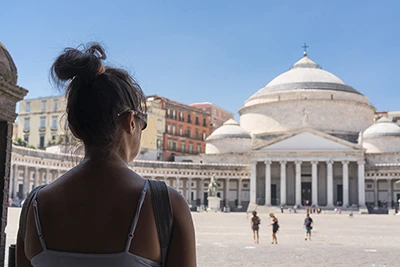 Architecture and Design
Architecture and Design Cities and Regions
Cities and Regions Culture and History
Culture and History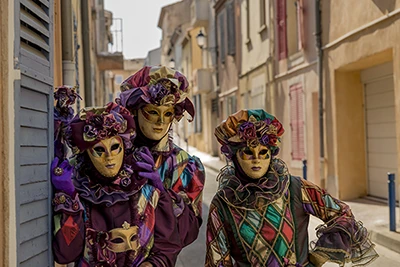 Events and Festivals
Events and Festivals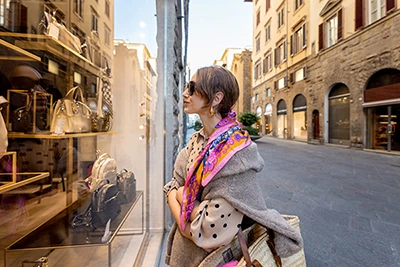 Fashion and Shopping
Fashion and Shopping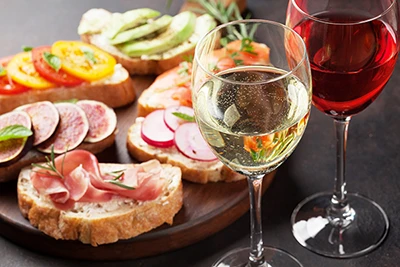 Food and Wine
Food and Wine Nature and Adventure
Nature and Adventure Unique Experiences
Unique Experiences